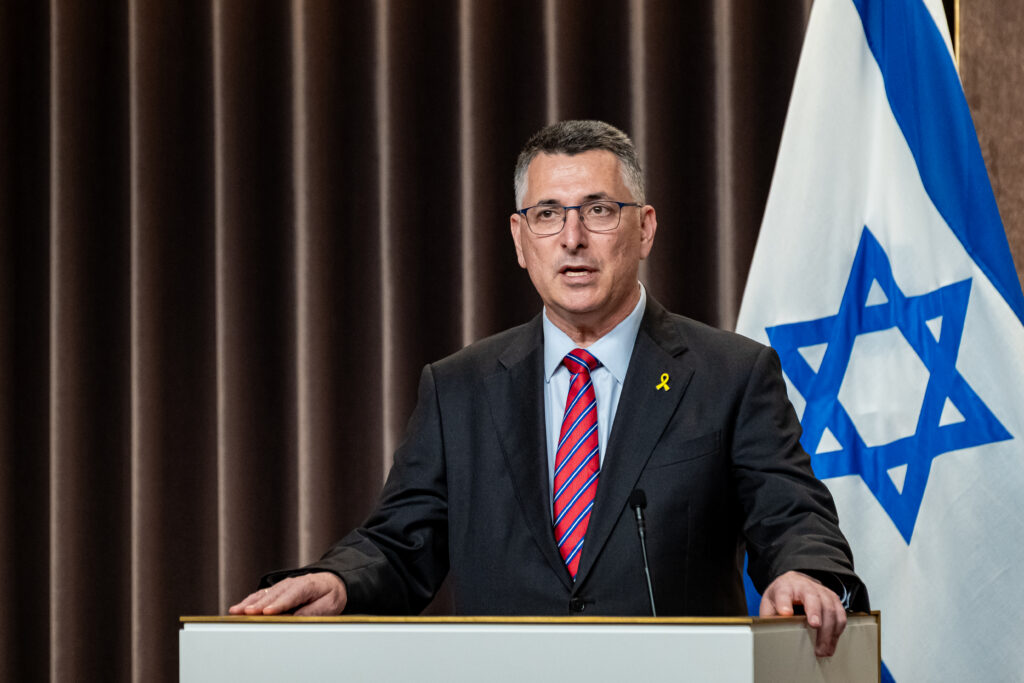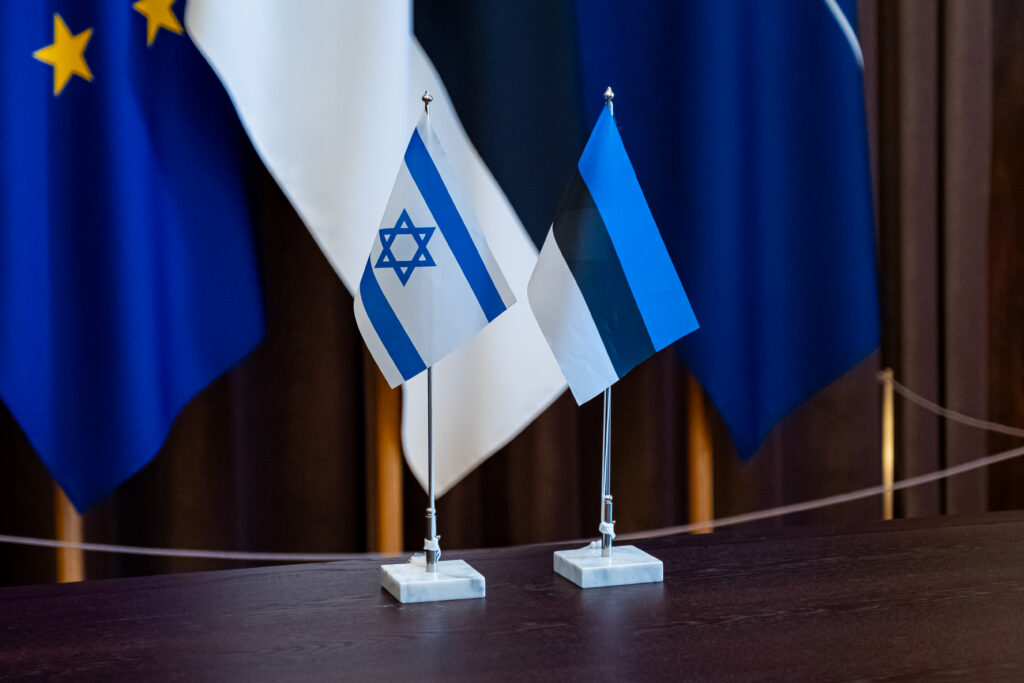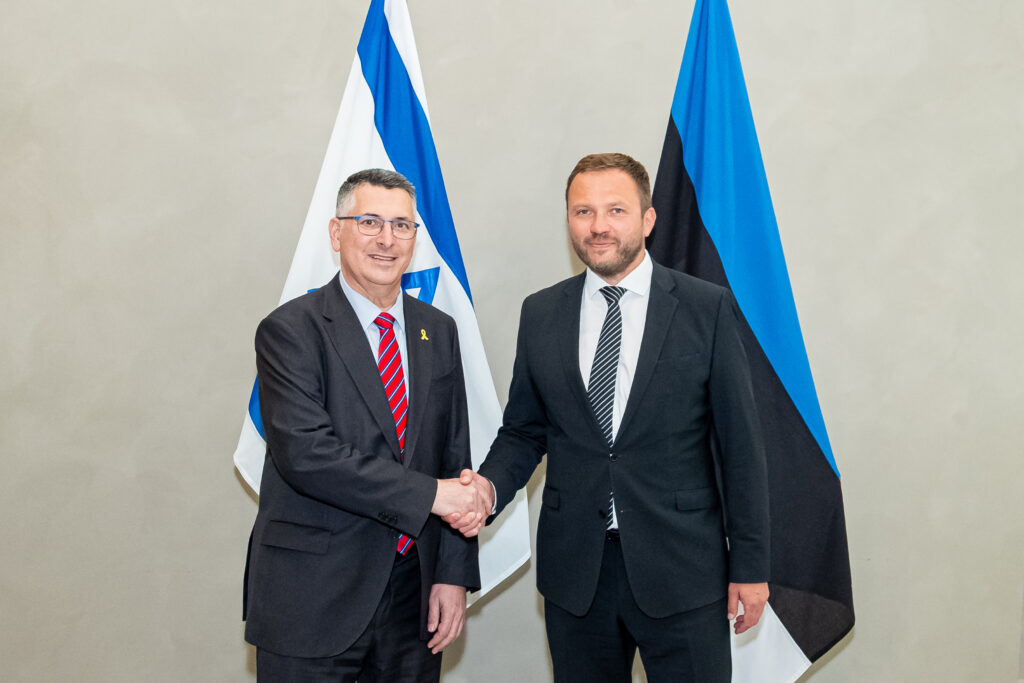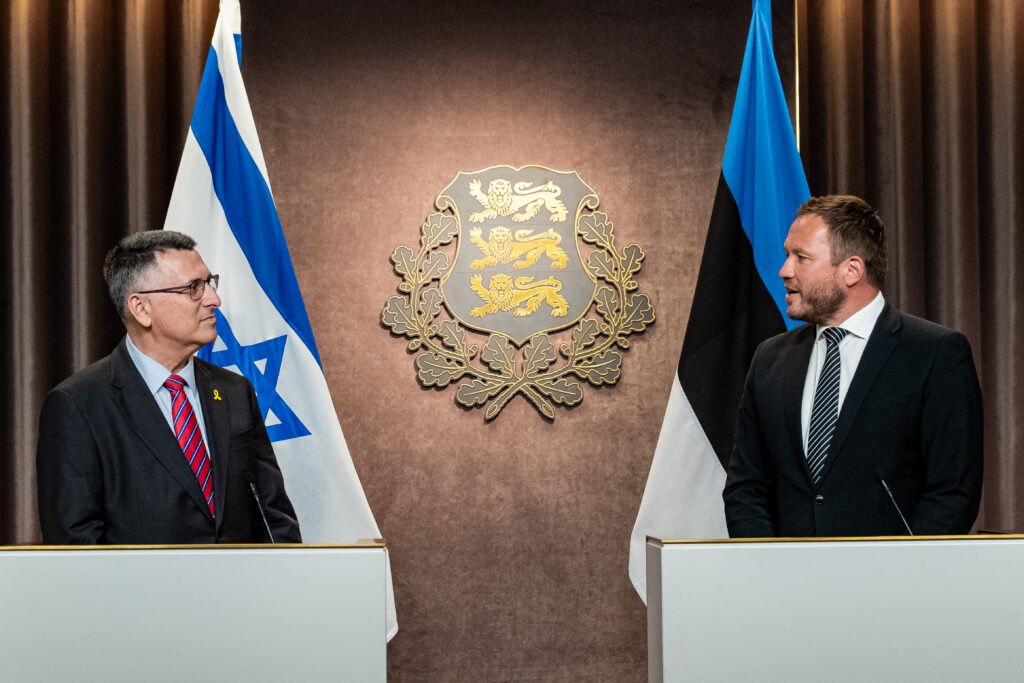In a move rich with diplomatic symbolism and strategic intent, Israel has announced plans to open an embassy in Tallinn – a significant milestone in the relationship between the two democracies on Europe’s eastern edge and the Middle East.
The announcement came during Israeli foreign minister Gideon Sa’ar’s visit to Estonia on Wednesday – his first to the Nordic nation. Standing alongside his Estonian counterpart, Margus Tsahkna, Sa’ar declared, “Israel will soon open its embassy in Tallinn. This demonstrates our intention to strengthen our bilateral relations. And we shall do so shortly.”
While the minister did not reveal a timeline, the declaration signals a new chapter in a relationship that has long been defined by quiet, pragmatic cooperation – especially in defence, cybersecurity and innovation.
A partnership forged in turbulent times
Israel was among the first countries to supply arms to Estonia in the early 1990s, as the newly independent state sought to rebuild its defence capabilities after the collapse of the Soviet Union. Since then, Estonian-Israeli relations have matured into a strategic partnership, underpinned by shared concerns over regional security, Russian aggression and the growing threats posed by authoritarian regimes.
Both Sa’ar and Tsahkna emphasised the convergence of their countries’ security outlooks – particularly in light of Russia’s war in Ukraine and Iran’s destabilising role in the Middle East.
“This is not only Israel’s war,” Sa’ar said, referencing the conflict with the terrorist group Hamas. “It is a global conflict between the free world and Iran’s terrorist axis… supported by totalitarian regimes – China, Russia and North Korea.” He stressed that Israel’s military operations targeting Iran’s missile and drone capabilities were not only in its own national interest but directly enhanced European security.
“We degraded Iran’s drone stockpiles – the same technology currently used by Russia against Ukraine,” he noted pointedly.

A natural ally in Tallinn
Tsahkna welcomed Israel’s decision to establish a permanent diplomatic presence in Estonia, calling it a “highly significant step” that would elevate bilateral relations “to a new level”.
“Israel is an important and close partner for Estonia,” he said. “We are particularly interested in Israel’s expertise in civil defence and innovation – areas where we face similar security challenges. Estonia is also happy to share our own experience in the digital field, which my Israeli colleague expressed great interest in.”
Both nations, he noted, are “on the front line” – Estonia as a NATO state bordering Russia, and Israel surrounded by hostile actors. This geographic and geopolitical reality has driven a shared focus on early warning systems, cybersecurity and resilient infrastructure.

Shared stances, differing nuances
While the ministers presented a united front on many global issues – particularly the need to support Ukraine and push back against Iranian influence – their tones diverged on the humanitarian crisis in Gaza.
Sa’ar was unequivocal in blaming Hamas for prolonging the war, declaring that the conflict could end “tomorrow” if the Islamist group released the hostages it seized on 7 October 2023. “Our willingness to reach a hostage deal and a ceasefire is genuine,” he said.
Tsahkna, for his part, expressed strong solidarity with Israel and condemned Hamas, but struck a more measured tone. He reiterated Estonia’s support for a two-state solution and called for “unhindered access to humanitarian aid” to Gaza, saying the protection of civilians must remain a priority.
“A sustainable future for both Israel and Palestine is essential,” he said, emphasising that peace and security must go hand in hand.

Support for Ukraine – and striking Iran
In response to a question about what concrete support Israel had offered Ukraine, Sa’ar underlined political backing and humanitarian aid. But he pointed to a more strategic contribution: Israel’s strikes on Iran.
“We gave Ukraine strong support by striking Iran, because Iran is Russia’s number one ally in this war,” he said. “I don’t know of anyone else who has provided this kind of assistance.”
For Israel, deepening ties with Estonia is not only about bilateral cooperation, but about anchoring its presence in the EU’s northeast – a region that understands the cost of occupation and the value of deterrence.
As the world becomes more polarised, Estonia and Israel are betting on the power of alliances forged not just in proximity, but in principle.

